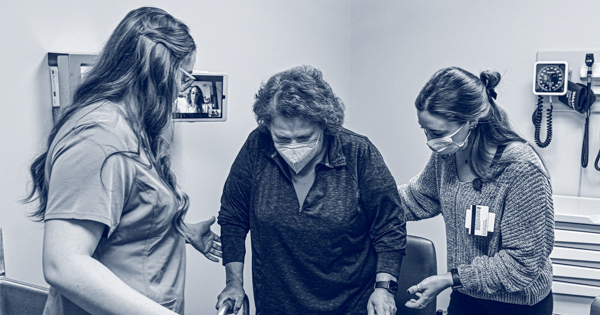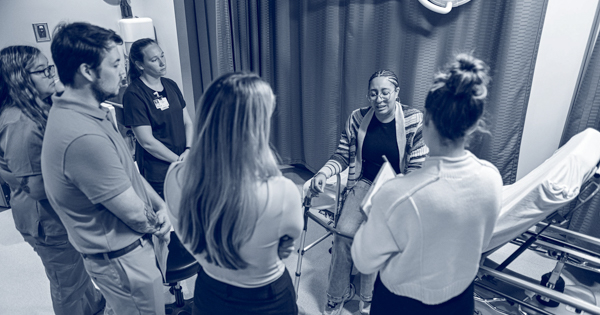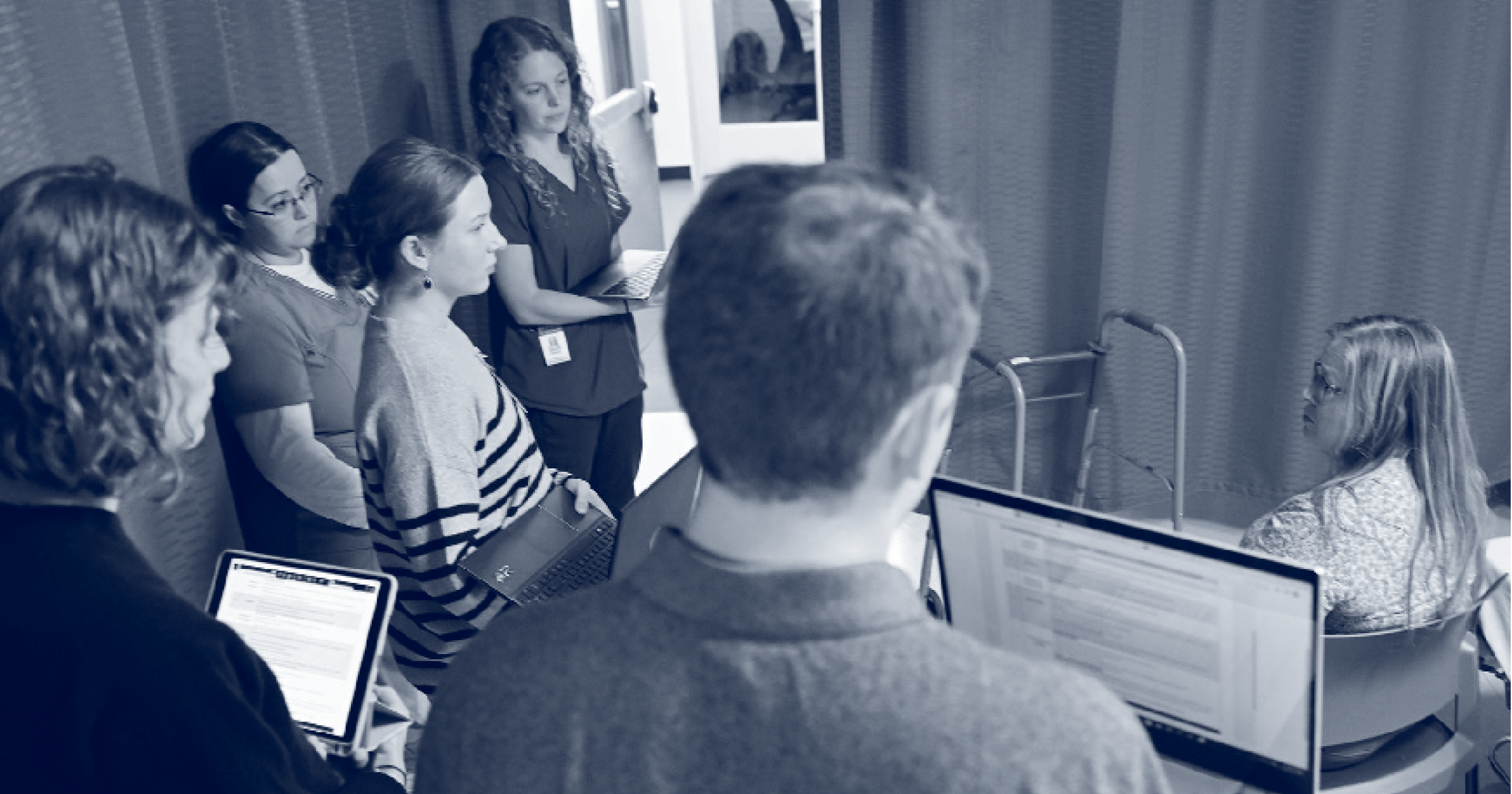IPE Program Making a Difference in Health Care

Though East Tennessee State University only established the Center for Interprofessional Collaboration in 2022, the university’s commitment to interprofessional education stretches back a decade.
At the helm is Dr. Brian Cross, Associate Vice Provost and Director of the Center for Interprofessional Collaboration. Cross, who joined ETSU in 2010, is a champion for interprofessional education and practice on campus – his passion for it is evident each time you speak with him.
“When we began this work, we started by asking ourselves, ‘Why?’ There are a lot of places that are not doing this kind of work at all, or not investing in it as much as we have,” said Cross.
Faculty and staff at ETSU label interprofessional care as utterly vital, encouraging collaboration and varying perspectives among a range of health care professionals, from doctors and nurses to pharmacists and respiratory therapists.
“Our ‘why,’” said Cross, “is decreasing potential negative patient outcomes in our health care systems and creating a new group of graduates who want to be part of the solution.”

ETSU has two models of IPE engagement for students: a two-year program that students complete together in-person in interprofessional teams and a one-year program that students complete fully online.
By nurturing collaboration and compassion, ETSU is training outstanding health care professionals who can bridge the gap among disciplines, ensuring seamless, quality care by putting patients at the center of their care.
With five health sciences colleges and 40-plus programs, ETSU offers a wide depth and breadth of experiences for students from all backgrounds, better preparing them for the real world.

“When our students leave our program, we don’t just graduate them – we empower them,” said Cross. “After they read their oath and receive their cords, we empower them to be change agents, and we mean that sincerely because they have the ability to make influential changes when they see something that needs to be fixed.”
In March 2023, the Center for Interprofessional Collaboration celebrated its largest graduating class with 161 students, a fitting milestone as the university celebrates the 10th anniversary of its commitment to interprofessional education.
“When our students leave our program, we don’t just graduate them – we empower them.”
Dr. Brian Cross

“I think with these types of endeavors, you have to believe that this is work that must be done, as it is still not the standard in clinical education or practice,” Cross said in 2023. “And so, when you look out at a room like that, it’s validation that, at an institutional level, we seem to be making a difference.”
And at the end of the day, making a difference – making a fundamental change – is at the heart of ETSU’s commitment to interprofessional education.
Read more incredible stories in the Winter 2024 Edition of ETSU Today. #BucsGoBeyond
Stay in Touch
Follow ETSU on Social
 Sam Wilson Building – Entra...
Sam Wilson Building – Entra...